Sign on the Window isn't the Bob Dylan podcast you need, but it's definitely the one that you want! Each week we select a Dylan song at random, live with the song for a week (or two) and then get together to discuss. This week is 1988's rendition of the traditional "Shenandoah" off Dylan's Down in the Groove.
This episode features New Zealand, Chief Shenandoah, voyageurs, the French in the Americas, sea shanties, wool screws and Lewis & Clark. It could be described as one long introduction to my latest podcast - Expeditions, which you find here.
Next week: I was dreaming about bills
CONTEXT (3:15)
This, and most of the album, was recorded on June 16, 1987. Madelyn Quebec and Carolyn Dennis were overdubbed on a later occasion. Down in the Groove was released on May 30, 1988. This has never been played live.
David Fricke in Rolling Stone said: “If the musician credits are any indication, the songs that made the final cut come from half a dozen different recording sessions spread out over six years.” Robert Christgau sums up the effort: “All he can do is Dylanize it.”
ACROSS THE WIDE MISSOURI (6:30)
Today, Shenandoah is a college, a valley, a National Park. For Kelly, it’s a river not only in Virginia but also New Zealand (!). As for the song, it appears to have originated with trappers and voyageurs on the continent prior to the nineteenth century sailing and portaging between rivers. Some of the lyrics before 1860 told a story of a trader who fell in love with the daughter of Oneida Iroquois Chief Shenandoah (1710-1816).
By the mid-1800s, the song became a sea shanty that traveled the world.
[“Shenandoah”] probably came from the American or Canadian voyageurs, who were great singers …. In the early days of America, rivers and canals were the chief trade and passenger routes, and boatmen were an important class. Shenandoah was a celebrated Indian chief in American history, and several towns in the States are named after him. Besides being sung at sea, this song figured in old public school collections. — Sea Songs and Shanties, Collected by W.B. Whall (1910, Glasgow)
In the 1880s, a former sailor who worked on clipper ships suggested the song originated as a black American spiritual that developed into a work song:
This chantey is obviously of American origin…. “Shenandoah” was more a wool and cotton chantey than a capstan chantey. I have many times heard it sung down the hold on the wool screws by the Sydney waterside workers … and many were full-blood negroes, who undoubtedly brought these chanteys off the cotton ships…. With regard to the words, these vary according to the taste of the chantey man in the first and third line of each verse, there being no effort called for on these two lines, but the second and fourth lines were always the same, these being the rhythm lines on which the weight was used. When I was in the wool trade in the eighties, in both [The Tweed](The Tweed) (Indian) and Cutty Sark this chantey was daily used on the wool screws.
There is probably some truth to that. Black workers were noted to sing this loading and unloading wool and cotton from ships in the late nineteenth century turning the wide Missouri into this world is mis’ry.
Paul Robeson was one of the first popular singers to record the song. It was featured in the 1965 James Stewart Civil War movie, fittingly titled, Shenandoah. Pete Seeger and Arlo Guthrie covered it. Emmylou Harris recorded it for the movie Sling Blade. Bruce Springsteen recorded it with full rolling cadence on the chorus – across the wide Missoura.
SONG ITSELF (21:00)
It’s fine. It’s not ruinous but it’s not as emotionally affecting as Bruce’s or Tom Waits’ or Robeson’s. Give Bob this song today, it’ll be better. The ’80s weren’t kind to the man and that this wasn’t a disaster means it’s a success. And while there’s no denying Dylan “Dylanizing” this song, that is the best part, namely his love away look away before the refrain. But it has harmonica, and claps? I mean, who even knows?!
THE EPISODE’S BOOKLET & PLAYLIST
RECOMMENDATIONS (29:50)
Daniel talks about his podcast, Expeditions. (Which is still being developed although everything said is still true.)
History is not the past. History is the present. We carry our history with us. To think otherwise is criminal. — James Baldwin
ENDINGS
No selection involved as we continue down the lazy river and our Funtime Slide into Summer. "Tell Ol' Bill" is next.
Follow us wherever you listen to podcasts. See our real-time playlist See That My Playlist is Kept Clean on Spotify. Follow us intermittently on Twitter and Instagram.
Tell your friends about the show, rate and review wherever they let you, and consider supporting us by subscribing or at Patreon.







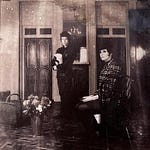
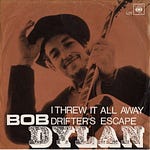
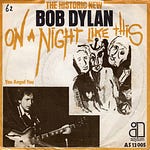

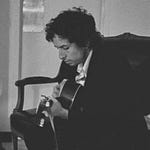
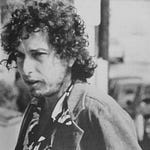

Share this post